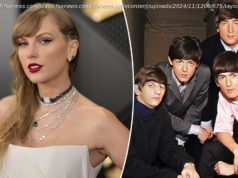Barbora Krejcikova developed her multifaceted game with the help of the former Wimbledon champion Jana Novotna, who died in 2017.
Hand pointing to the sky, the new French Open champion Barbora Krejcikova gave credit where she knew it was due on Saturday. “I hope she’s happy,” Krejcikova said of Jana Novotna, the former Wimbledon champion who died of cancer in November 2017. In Krejcikova’s view, all of “this” — the surprise run to a Roland Garros title — would not have happened without Novotna’s influence on her career at a critical phase: the transition from juniors to the much more selective professional game. It was good fortune that Novotna was from Brno: the same Czech city as Krejcikova. But Krejcikova and her family made their own luck, too. She showed up with her parents at Novotna’s home in 2014 with a letter of introduction and a desire to find a tennis mentor who understood both the micro and macro of what it took to become great. The visit was her mother’s idea, but Krejcikova, then 18 and recovering from a recent illness, made her own case, and Novotna, to her surprise, was receptive. “She was just very nice, very warm,” Krejcikova said on Saturday. “She told me: ‘I have a court on Thursday in this club at this time. If you want to come, you can come. We can look at you, have a hit. We’re just going to see what’s going to come.’” Krejcikova told her that she had been ill. “Jana was like, ‘It doesn’t matter,’” Krejcikova said. “‘If you cannot hit, we can talk.’” Novotna agreed to not only counsel her but also coach her and follow her on the circuit. Novotna’s contacts as a longtime leading player meant that Krejcikova had access to some quality hitting partners. “We were playing the legends tournament here at Roland Garros a few years ago, and Jana said, ‘Come hit with this girl I’m coaching,’” Martina Navratilova said on Saturday. “And I thought Barbora had good talent, but you still never think that it’s going to lead to something like this. She didn’t have any obvious weapons, but her brain is her big weapon. She has got the good hands. She has got the variety and then the brain to know when to use it.” Novotna, who died at 49, had variety and a sharp mind, too. She was a graceful mover with a one-handed backhand, committed to attacking the net behind chipped approach shots and then hitting angled volleys and overheads. It was a high-risk, eye-catching game and, like Krejcikova, she excelled in doubles, but her nerves betrayed her in her biggest singles matches through much of her career.






